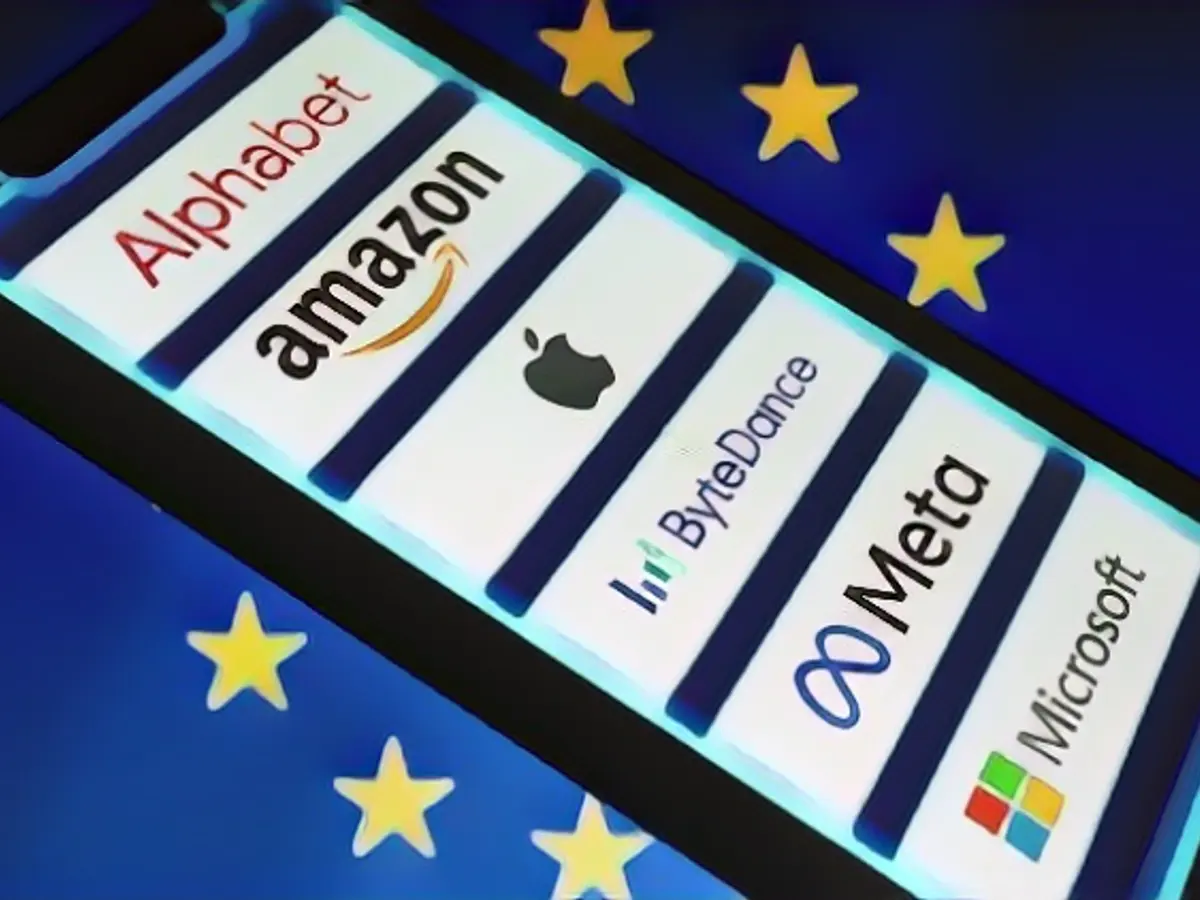Tech Titans Prolong Deception on EU Consumers
The Digital Services Act's Challenge Persists
Unfortunately, the digital deception continues, even after multiple months since the European Digital Services Act (DSA) was enacted. Large-scale tech corporations from the U.S. and China are still flagrantly violating the new legal norms, according to a study spearheaded by the Federation of German Consumer Organizations (vzbv). The Google-owned giants, Amazon, Booking.com, and YouTube, along with Google Shopping, are still employing unethical design tactics, locating consumers along predetermined paths, against the DSA's regulations.
Color and Click Paths as Player's Tools
Since August 2023, major internet service providers have been prohibited from exploiting cognitive or visual patterns through design tricks, which could include color schemes of buttons or overly lengthy click paths. Vzbv's Chairwoman, Ramona Pop, criticizes companies for their blatant disregard of applicable regulations, maintaining that individuals feel manipulated, bewildered, or deceived by these design tricks occurring on digital platforms.
Advertising Transparency Crisis
Consumer advocates also uncovered serious setbacks in advertising transparency. DSA necessitates comprehensive and easily accessible information regarding advertisement display criteria. Unfortunately, this information isn't available at all as vendors haven't complied yet. The study surveyed platforms such as Instagram, Meta Group, Snapchat, TikTok, and Twitter. While ad content was marked as promotional and the respective advertiser was named, Snapchat was the only exception that neglected to fulfill its obligation by not addressing the criteria's transparency.
Contact Information and Terms & Conditions
The consumer advocacy group discovered issues associated with the presentation of contact information and terms & conditions among tech giants. While providers such as Apple's App Store, Facebook, and TikTok now offer contact options, the consumer advocates criticize the difficulty in accessing them. Furthermore, some terms and conditions are challenging to locate and do not entail all mandatory details, like internal complaint systems.
Enforcement Concerns
Despite the Digital Services Act's mandates, consumer advocacy groups are expressing concerns regarding the level of compliance and enforcement. Tech companies still have a long way to go to meet the new regulations and foster a more transparent digital landscape. These challenges are not unique to individual platforms but represent a broader problem calling for enhanced regulatory scrutiny and compliance efforts.
Sources:
- European Commission Investigates Google, Meta, and Amazon for DSA Compliance Issues
- Meta Fined €1.2 Billion for Data Transfer Contravention
- Google Antitrust Lawsuit: A Dispute Over Search and Digital Advertising Markets
- EU Targets Tech Companies for Content Moderation and Child Safety in Digital Spaces
- The Exemptions, Challenges, and Opportunities in DSA: Remaining Compliant in a Digital Age
Enrichment Data:
The Digital Services Act (DSA) has challenged major tech companies like Amazon, Google, and others to change and adapt their platforms in compliance with the new regulations. The following points summarize some of the key aspects concerning tech giants' current status and the challenges they face in achieving full compliance.
- Enforcement Actions:
- The European Commission is actively scrutinizing and implementing penalties against tech corporations for DSA violations. Google, Meta, and Amazon have been under investigation for various compliance issues, including data protection, content moderation, and advertising practices.
- Compliance Challenges:
- Companies must adapt to the DSA's requirements, such as user consent for targeted advertising, clear information about recommendation systems, and providing an option to opt-out.
- Penalties and Fines:
- Breaches of the DSA may result in massive fines. For instance, Meta was penalized €1.2 billion for data transfer infringements.
- Content Moderation:
- The DSA requires platforms to tackle illegal content and protect minors online. Tech giants are striving to enhance their moderation tools and processes to comply with these requirements.
- User Empowerment:
- The DSA aims to empower users by offering clear information about advertisements and enabling prompt reporting of illegal content. However, the effectiveness of these mechanisms varies by platform.
- Transparency in Advertising:
- The DSA discourages targeted online ads based on sensitive data, reducing targeting precision while protecting ad environments.
- Ongoing Scrutiny:
- Tech companies face ongoing regulatory scrutiny in the EU and the US regarding their digital advertising practices. Google, for example, faces antitrust lawsuits in the U.S. for search and digital advertising market dominance.
In conclusion, even though tech companies are striving to comply with the EU's Digital Services Act, their progress is still being scrutinized, with ongoing investigations and penalties. The DSA seeks to prevent manipulation, foster transparency, and empower users in digital spaces.








